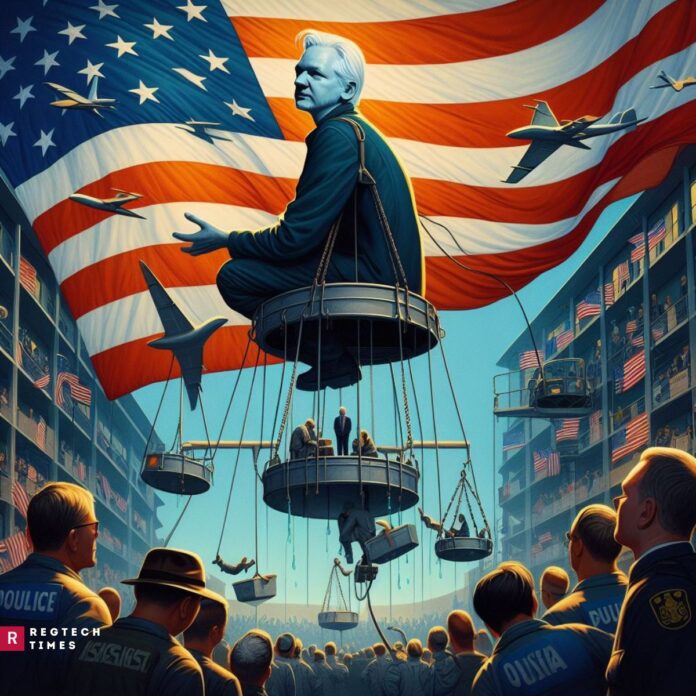US President Joe Biden’s acknowledgment of Australia’s plea on April 10, 2024 to halt the prosecution of WikiLeaks founder Julian Assange on espionage charges has sparked global attention. Australia’s parliament passed a motion in February with the prime minister’s support, urging an end to the legal saga surrounding Assange, who has been detained in Britain since 2019 while battling extradition to the United States.
Background of Assange’s Legal Saga
Assange’s legal saga traces back to his pivotal role in releasing a vast cache of classified documents pertaining to the Iraq and Afghanistan wars in 2010. As the founder of WikiLeaks, He orchestrated the dissemination of these documents, sparking widespread debate and scrutiny of US military actions. Subsequently, the US government indicted him on charges of espionage, setting off a protracted legal battle.
Assange, an Australian citizen, found himself embroiled in extradition proceedings when he sought refuge in Britain in 2019. His efforts to avoid extradition to the United States have been met with numerous legal challenges and appeals. The complexities of international law, the implications for press freedom, and the starkly opposing views on Assange’s actions have made his case a lightning rod for global attention and controversy.
Biden’s Response and Implications
Biden’s acknowledgment of Australia’s request to drop Assange’s prosecution carries significant implications for the future of the case. By stating that the matter is under consideration, Biden has sparked speculation about potential diplomatic maneuvers and shifts in US policy regarding him. His brief response leaves room for interpretation, prompting questions about the administration’s stance on press freedom and whistleblowers.
The implications of Biden’s remarks extend beyond his individual case, touching upon broader issues of government transparency, international relations, and the balance between national security and civil liberties. The outcome of this deliberation could shape the trajectory of Assange’s legal battle and have far-reaching consequences for freedom of expression globally.
Legal Developments and Pending Appeals
The legal developments in Assange’s case have been closely watched. He is currently awaiting a decision on whether he can make a last-ditch appeal against extradition, with a British court expected to announce its verdict on May 20. Meanwhile, the High Court in London has given the United States three weeks to provide further assurances regarding Assange’s treatment if he is extradited.
Assange’s Defense and Supporters’ Appeals
WikiLeaks editor-in-chief Kristinn Hrafnsson has called for “a political solution” to his plight, urging governments to intervene and secure his release. Hrafnsson highlighted the excessive and brutal conditions of Assange’s detention in the high-security Belmarsh Prison in southeast London, advocating for a link between the case and Australia’s AUKUS security pact with the US and UK.
Assange’s Defense and Supporters’ Appeals
Assange’s defense rests on the principle of journalistic freedom and the public’s right to know. He and his supporters argue that his actions in releasing classified documents were motivated by a commitment to transparency and accountability, shedding light on government misconduct and human rights abuses. WikiLeaks, under Assange’s leadership, has been instrumental in exposing corruption and wrongdoing on a global scale, earning him both accolades and condemnation. Supporters, including human rights organizations, journalists, and activists, have rallied behind Assange, viewing his prosecution as a threat to press freedom and investigative journalism. They emphasize the chilling effect his extradition and prosecution could have on whistleblowers and journalists worldwide.
Calls for his release echo throughout the international community, with pleas for governments to intervene and ensure his protection. His defense team continues to mount legal challenges and appeals, navigating a complex legal landscape in their quest for justice and the preservation of fundamental freedoms.
As the legal proceedings unfold and diplomatic discussions continue, the fate of Julian remains uncertain. The case not only raises questions about press freedom and government transparency but also underscores the complexities of international law and extradition agreements in an increasingly interconnected world.


